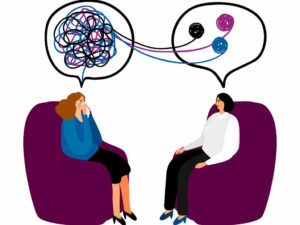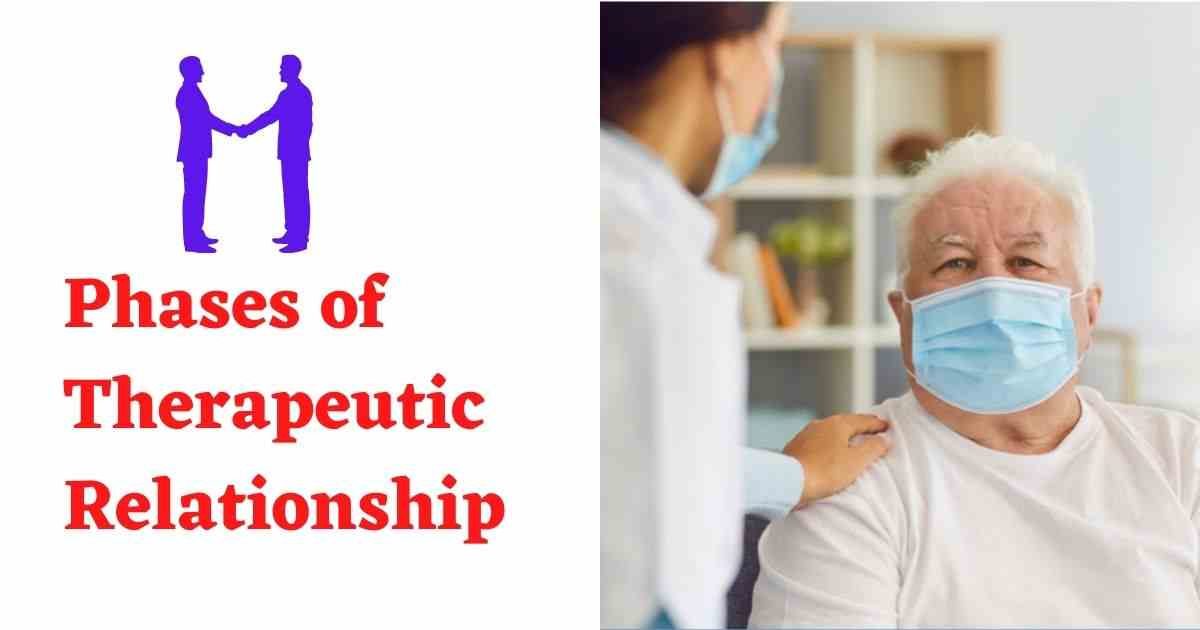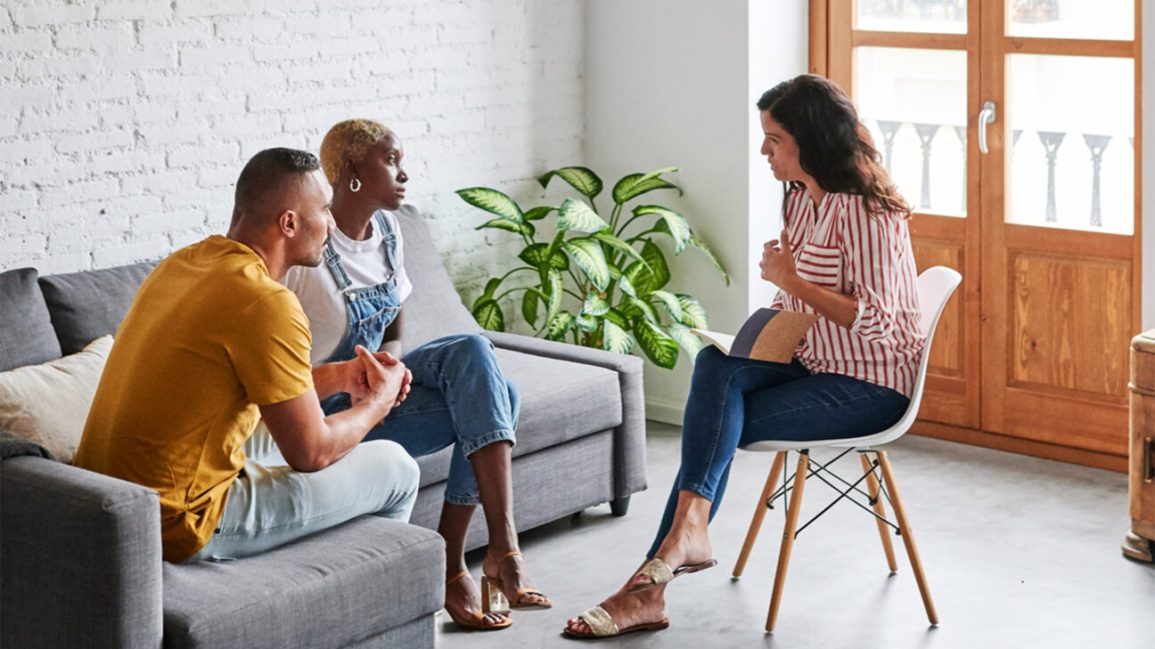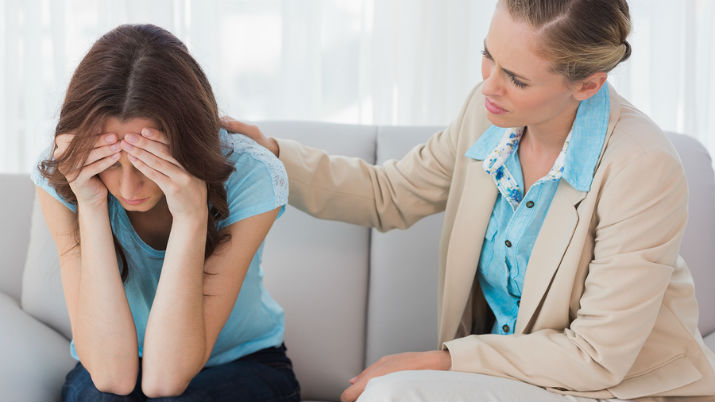If you’re looking for a therapist, it’s important to understand the therapeutic relationship and what it can offer you. This type of relationship is based on trust, respect, and collaboration. It can help you feel understood and supported as you work through your challenges. In this blog post, we’ll discuss what the therapeutic relationship is and how to make the most of it.
Contents
What Is Therapeutic Relationship?
 Thera means “healing” or “cure,” and the root word -peutic comes from the Greek word for “servant.” So, a therapeutic relationship is one in which there is a healing interaction between two people.
Thera means “healing” or “cure,” and the root word -peutic comes from the Greek word for “servant.” So, a therapeutic relationship is one in which there is a healing interaction between two people.
The therapist-client relationship is central to the success of therapy. In fact, research has shown that the relationship is more important than the therapist’s technique or approach in predicting whether therapy will be successful.
When a strong therapeutic relationship exists, clients feel understood, supported, and accepted. They are more likely to engage in the process of change and to continue attending sessions.
Characteristics of Therapeutic Relationship

There are many different characteristics of a therapeutic relationship. However, there are a few key characteristics that are essential for the relationship to be effective. These key characteristics include trust, communication, mutual respect, and collaboration. Some of these characteristics are:
Rapport
There maybe be an initial rapport between the therapist and client, but it is important that this develops over time. The rapport should be based on trust, mutual respect, and understanding.
The therapist should be able to build a positive relationship with the client, which will help to establish an effective working alliance.
Trust
A therapeutic relationship is built on trust. The therapist needs to be able to trust the client, and the client needs to be able to trust the therapist. This trust is essential for building a successful relationship. There can be no trust if there is no transparency. Sometimes there are things that the therapist may not want to share with the client, but it is important that the therapist is honest and open with the client.
Communication
Effective communication is essential for a therapeutic relationship. The therapist needs to be able to communicate effectively with the client, and the client needs to be able to communicate effectively with the therapist. There should be a two-way flow of communication between the therapist and the client.
Mutual Respect
A therapeutic relationship is built on mutual respect. The therapist needs to respect the client, and the client needs to respect the therapist. This mutual respect is essential for building a successful relationship.
Collaboration
A therapeutic relationship is based on collaboration between the therapist and client. Both parties need to be willing to work together in order to achieve the best results. The therapist should be open to the client’s suggestions, and the client should be willing to follow the therapist’s advice.
Mutual Engagement
Engagement is something that should be mutual between the therapist and client. Both parties need to be fully engaged in order to make the most of the relationship. If either party is not fully engaged, then it will be difficult to achieve the desired results. There can be no effective therapeutic relationship without engagement from both parties.
Genuineness
Sometimes there can be a temptation for the therapist to act in a certain way, or to pretend that they are something that they are not. However, it is important that the therapist remains genuine with the client. The therapist should be honest and open with the client at all times. This will help to build trust between the two parties.
Phases of Therapeutic Relationship

There are many phases of the therapeutic relationship.
Assessment Phase
This first phase is where the therapist and client get to know each other. The therapist will assess the client’s needs and wants, while also trying to understand the client’s background and current situation. This phase also includes setting goals for therapy. It may also be helpful for the therapist to provide psychoeducation during this phase.
Building Goal Phase
This second phase is focused on building rapport and trust between the therapist and client. The therapist will work to create a safe and supportive environment for the client. This phase also includes exploring the client’s thoughts, feelings, and experiences. It may also give an opportunity for the client to start working on goals.
Working Phase
This phase is where most of the work actually gets done. The therapist and client will continue to build on the trust and rapport that was established in the previous phases. They will also start working towards meeting the goals set in the assessment phase. This phase can be difficult, but it’s also when real progress can be made.
Ending Phase
The ending phase is just that – a time when therapy comes to an end. This doesn’t mean that all work is done, though. The therapist and client should still have a discussion about what comes next. They may decide to continue meeting periodically or they may simply stop communicating altogether. No matter what, it’s important
Terminating Phase
The terminating phase is when the client and therapist begin to wrap up therapy. This may include reviewing progress made and setting goals for after therapy ends. It is also common for therapists to provide resources during this phase. It also gives the client a chance to say goodbye and thank you to the therapist.
How To Improve Therapeutic Relationship?

There are many ways to improve the therapeutic relationship. Some of these are:
Being Genuine
Genuineness is something that can be built into the relationship from the very beginning. It is important to be open and honest with your patients from the start. This will help to build trust between you and your patient. Sometimes there are many things that we want to keep hidden from our patients. However, it is important to be as transparent as possible. This will help to create a stronger relationship between you and your patient.
Try Listening
One of the most important things that you can do in the therapeutic relationship is to listen. It is important to really listen to what your patient is saying. This means not only hearing the words that they are saying, but also trying to understand the meaning behind them. There are many ways to improve your listening skills. One way is to practice active listening. This involves giving your full attention to the person who is speaking, making eye contact, and letting them know that you are listening by nodding or agreeing with what they are saying. Another way to improve your listening skills is to use reflective listening. This involves repeating back what you have heard the person say in your own words. This will help ensure that you have understood them correctly and that they feel heard.
Use Appropriate Body Language
 Your body language can also play a role in the therapeutic relationship. It is important to be aware of the signals that your body is sending. Try to avoid crossing your arms or legs, as this can send a message that you are closed off from the person who is speaking. Instead, try to open up your body and maintain good eye contact. This will show the person that you are interested in what they are saying and that you want to build a stronger relationship with them.
Your body language can also play a role in the therapeutic relationship. It is important to be aware of the signals that your body is sending. Try to avoid crossing your arms or legs, as this can send a message that you are closed off from the person who is speaking. Instead, try to open up your body and maintain good eye contact. This will show the person that you are interested in what they are saying and that you want to build a stronger relationship with them.
Be Patient
One of the most important things to remember when building a therapeutic relationship is to be patient. This is not a process that happens overnight. It takes time to build trust and rapport with someone. So, be patient and take the time to really get to know your patients. This will help you to create strong relationships with them that will last for many years to come. It also helps to remember that not everyone is the same. What works for one person may not work for another. So, be patient and experiment until you find what works best for you and your patients.
Being Respectful
There are many things to consider when building a respectful therapeutic relationship. One of the most important is to be aware of your own personal biases and how they might affect the person you are working with. Another thing to consider is the power dynamic between you and the person you are working with. It is important to ensure that you are not taking advantage of the person or making them feel uncomfortable in any way. Finally, it is important to be aware of cultural differences and how they might impact the way you interact with someone.
Give Efforts
 Sometimes, the therapeutic relationship can be a difficult one to build. However, it is important to remember that it is worth the effort. The therapeutic relationship can play a vital role in the success of treatment. So, give it your all and you will see the rewards. Sometimes there are many things that one wants to keep hidden from our patients. However, it is important to be as transparent as possible. This will help to create a stronger relationship between you and your patient.
Sometimes, the therapeutic relationship can be a difficult one to build. However, it is important to remember that it is worth the effort. The therapeutic relationship can play a vital role in the success of treatment. So, give it your all and you will see the rewards. Sometimes there are many things that one wants to keep hidden from our patients. However, it is important to be as transparent as possible. This will help to create a stronger relationship between you and your patient.
Build Rapport
One should always try to build rapport with their patients. This can be done in a number of ways. One way is to find common ground. This could be things like shared interests or experiences. Another way to build rapport is to mirror the person you are speaking with. This means matching their body language and vocal tone. This will help the person feel more comfortable with you and make it easier for them to open up to you.
Create Boundaries
It is also important to create boundaries in the therapeutic relationship. This means setting limits on what you are willing to share about yourself and your personal life. It is also important not only setting limits but also respecting the limits that your patient set for themselves. This will help to ensure that both parties feel comfortable and safe in the relationship. It also helps to remember that not everyone is the same. What works for one person may not work for another. So, be patient and experiment until you find what works best for you and your patients.
Positive Impacts of Therapeutic Relationship

There are many benefits of having a trusting and supportive relationship with your therapist.
- Patients in therapy often feel more motivated to change and improve their lives when they have a good rapport with their therapist.
- A strong therapeutic alliance has been linked with fewer relapses, better coping skills, and increased insight.
- Therapy can be an emotionally intense experience, and having a caring relationship with your therapist can make all the difference.
- If you’re feeling like your therapy isn’t going well, or if you’re not sure if your therapist is right for you, talk to them about it.
- Good communication is essential to making the most of the therapeutic relationship.
- Patients who feel comfortable talking to their therapists about sensitive topics are more likely to benefit from treatment.
Negative Impacts of Bad Therapeutic Relationship

There are many negative impacts of a bad therapeutic relationship.
- One is that it can make the therapist feel unprofessional, and two, it can make the client feel as if they are not being helped. Sometimes there are also legal implications if things go too far.
- It can also sometimes lead to distrust between the therapist and client, as well as discomfort on either side. In the worst-case scenario, it can even lead to further mental health issues for the client. It may be difficult for them to trust anyone after that.
- If the relationship is particularly bad, the therapist might even choose to end it. This is often the last resort, but it can be the best thing for both parties if things have gone too far.
- Another negative impact can be that the therapist may feel burdened by the client or that they are not making progress.
- Sometimes with bad therapeutic relationships, the therapist may feel like they are doing all of the work and that the client is not contributing. This can be frustrating for both parties involved.
- With a bad therapeutic relationship, the therapist-client relationship can be significantly damaged. It is therefore important to try to make the most of it and avoid any negative impacts.
However, with a good therapeutic relationship, all of these things can be avoided. The therapist and client will feel comfortable communicating with each other, and both sides will feel like they are being helped. It is a two-way street, and it is essential for the success of the therapy session.
Conclusion
The therapeutic relationship is a partnership between therapist and client that is based on trust, respect, and effective communication. The therapeutic relationship can be a powerful tool in helping people to heal from past trauma, address current challenges, and make positive changes in their lives. If you are considering therapy, make sure to find a therapist with whom you feel comfortable and safe. Talk to your therapist about your goals for therapy, and be honest about what you are struggling with. With the right therapist, you can make the most of the therapeutic relationship and create lasting change in your life.
If you have any questions or would like more information about the therapy, please feel free to contact us. We will give you all the support you need to make progress in your therapy.
A Word From Therapy Mantra
Your mental health — Your psychological, emotional, and social well-being — has an impact on every aspect of your life. Positive mental health essentially allows you to effectively deal with life’s everyday challenges.
At TherapyMantra, we have a team of therapists who provide affordable online therapy to assist you with issues such as depression, anxiety, stress, workplace Issues, addiction, relationship, OCD, LGBTQ, and PTSD. You can book a free therapy or download our free Android or iOS app.


